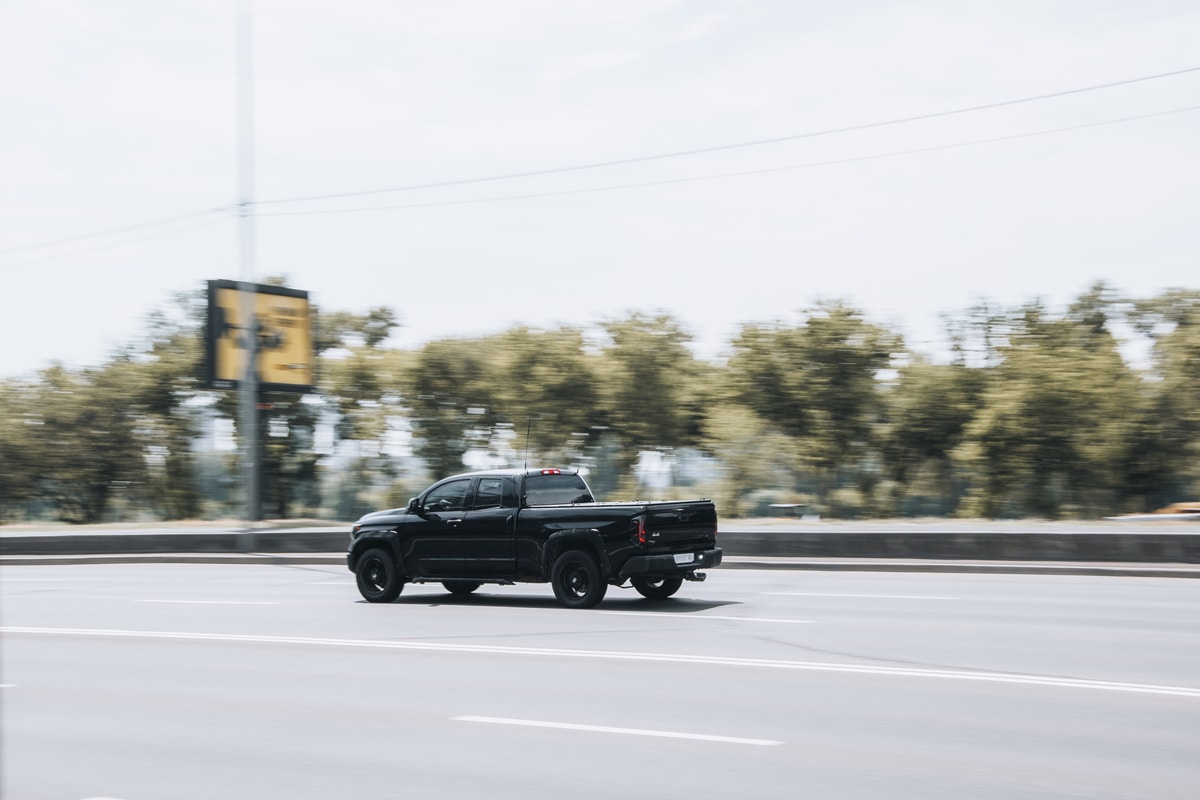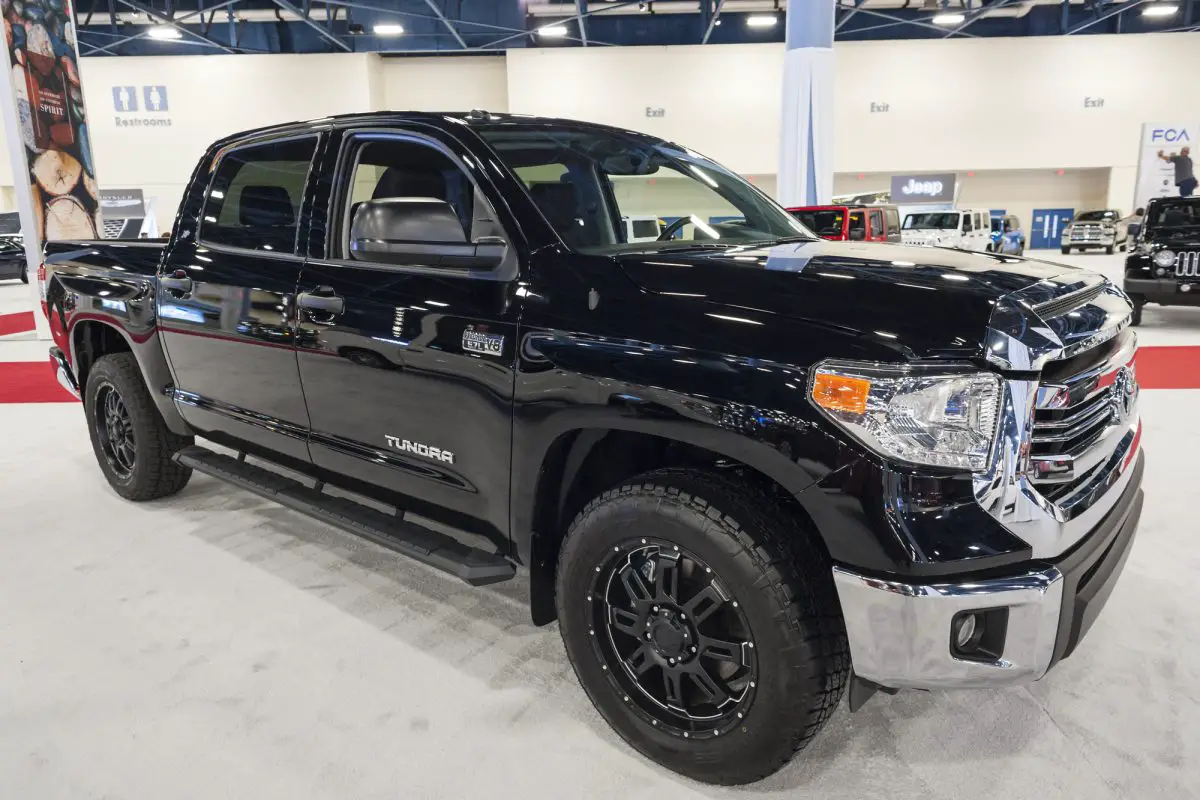Toyota Tundra owners know the benefits of having one. Whether it is the V8 engine, high capacity towing, or the long list of safety features, there are plenty of reasons to get a Tundra. However, some Tundra drivers have experienced getting lousy gas mileage.
There are many factors that can affect the gas mileage of your Toyota Tundra. For example, where and how often you drive, how much you haul, and time spent idling can all lower your gas mileage. Thankfully there is a lot you can do to improve the gas milage your Toyota Tundra gets.
This article will discuss how these things can affect gas mileage and provide tips on how you can improve it. Read on!

What Can Affect the Gas Mileage on My Toyota Tundra?
Gas mileage on your Toyota Tundra is heavily affected by your driving choices. While the Tundra has limitations, consistent traffic, heavy towing, and idling can affect your overall mileage.
Let’s take a closer look at these factors and how they affect your Tundra’s overall gas mileage.
Traffic
We know there is a reason that manufacturers calculate miles per gallon for both highway and city driving as different totals, but the traffic you experience can differ. For example, your gas mileage will suffer if you commonly sit in stop-and-go traffic during your regular commute.
Unfortunately for many people, this may be unavoidable. It’s not like you can simply change your work schedule to adjust to the traffic. However, if you can do something to experience less traffic, like an alternative route, try it. The more traffic you experience, the more your overall MPG will suffer.
Idling
Idling or leaving the engine of your Tundra running while it is not in motion is an important habit to break. Sure, we may not always be able to control when we idle in traffic, but allowing your car to run unnecessarily in other circumstances is not a good idea.
Idling uses quite a bit of fuel while reading at zero MPG. You may think this is a good thing as it lowers your overall gas mileage, but all it really does is skew the data. When you idle, your car is using fuel without traveling any distance. So, it will affect your MPG number without giving an honest interpretation of how many miles you’re really getting.
Unfortunately, this can make it seem like you are getting better gas mileage than you actually are. The number on your dashboard may reflect something great, but it won’t save you money overall since the actual gas mileage didn’t improve.
Short Trips
If you find yourself going on multiple short trips throughout the week or day in order to fulfill your obligations, it can show in your gas mileage. However, going for multiple short trips hurts your overall gas mileage. So, if you are used to making multiple weekly trips, consider condensing these trips into fewer if possible.
While this may be unavoidable, like picking the kids up from school every day, you can combine trips you can control. For example, when picking up the kids, consider stopping at the store first if you need to pick something up. Combining your trips like this can greatly affect your overall gas mileage.
How Can You Help a Toyota Tundra Get Better Gas Mileage?
You can help your Tundra get better gas mileage by not hauling things unnecessarily and not accelerating too quickly after being stopped. Overall to get better MPG, you need to be more conscientious about the way you drive.
Since we know what causes your Toyota Tundra to get bad gas mileage, let’s talk about how you can improve your mileage. So, let’s break down the changes you can make.
Watch Acceleration
One way you can improve the gas mileage on your Toyota Tundra is by considering how quickly you accelerate from a stop. If you are the type of driver who accelerates quickly after the light turns green, you may want to consider being slower.
Accelerating too fast uses a lot of gas in a short period of time. The energy required to push your Tundra forward so quickly from a stop wastes gas and causes your gas mileage to suffer. So, take off from lights and stop signs a little bit slower to ensure you’re getting the best MPG you can.
Cruise Control
While this may not be an option for everyone, cruise control can help save gas and increase your overall MPG depending on traffic patterns. The reason that this can be helpful for MPG is that we tend to accelerate and brake when it would be more efficient to coast. Cruise control allows your Tundra to keep a steady speed.
Cruise control keeps the Tundra at one steady speed rather than fluctuating between multiple different speeds. It also gives the driver a break during long drives, allowing them to rest. So, if you’re on a long stretch of road, try cruise control and see how it can affect your overall MPG.
Stop Unnecessary Hauling
One of the major benefits of having a Toyota Tundra is the hauling capacity. While hauling is convenient for many reasons, it also negatively impacts your overall gas mileage. So, always make sure you are carrying extra weight in your Tundra for a specific purpose.
This can happen with any type of vehicle. Sometimes when we load up our vehicle with something we’re taking home, we don’t always take it out right away. This adds extra weight to your vehicle, adding to the overall gas mileage. So, take the time to unload your Tundra before driving it any further than you need to drive it with the load attached.

Final Thoughts
Overall, there are many possible reasons that your Tundra may be getting bad gas mileage. Thankfully, there are ways you can help improve your mileage. So, consider making some of these changes when possible and see the difference it makes for your overall MPG.
